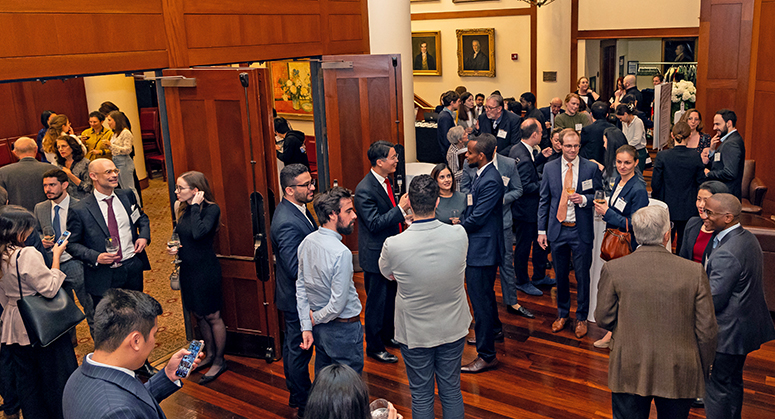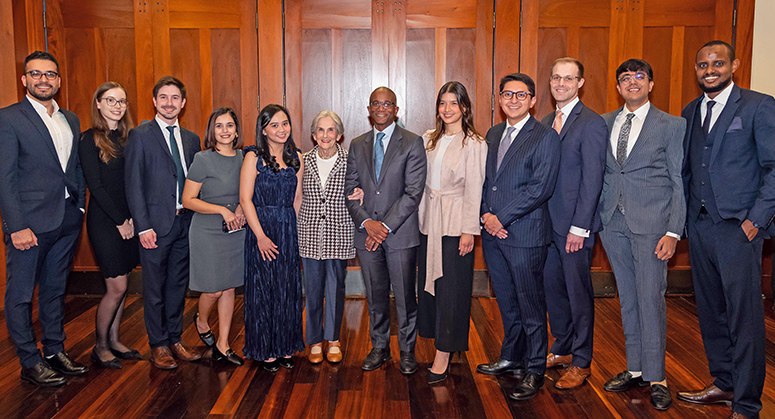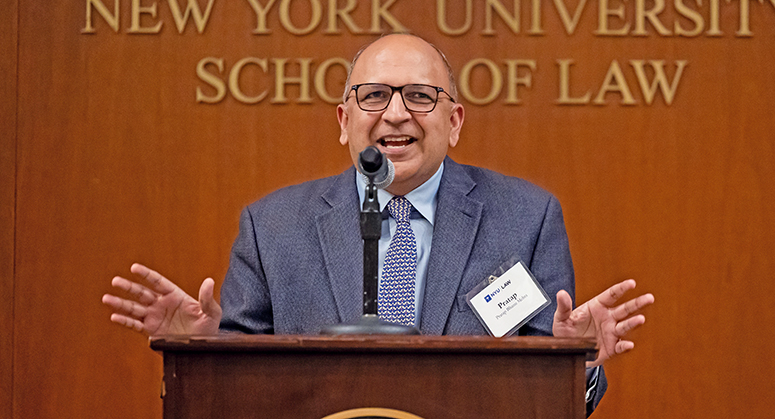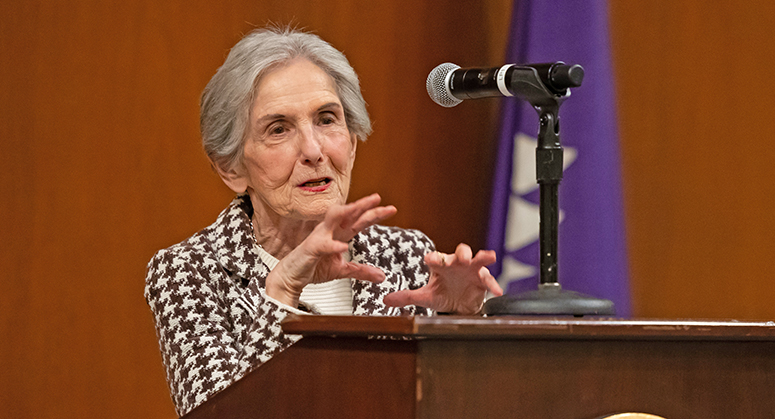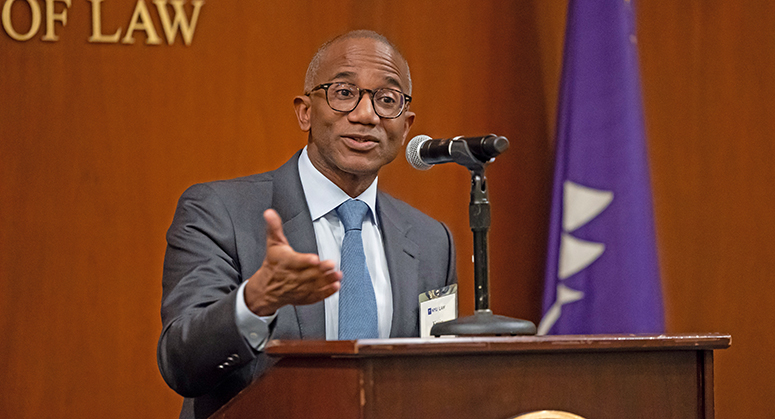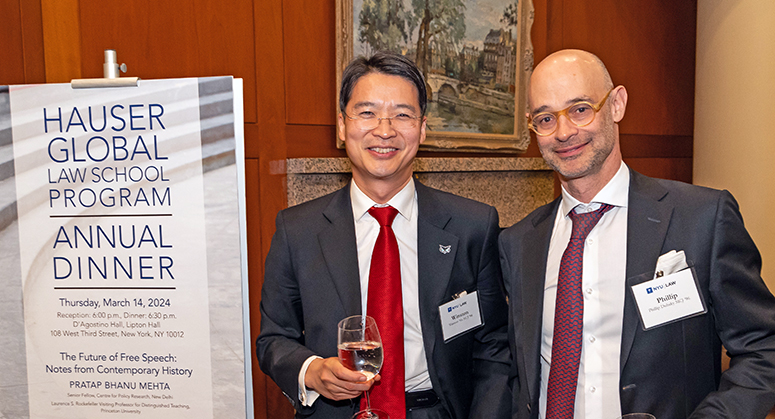At the Hauser Global Law School Program’s annual dinner, Pratap Bhanu Mehta contemplates a worldwide free speech crisis
The Hauser Global Law School Program’s annual dinner on March 14 convened past and present members of the program’s community, with Pratap Bhanu Mehta, Laurance S. Rockefeller Visiting Professor for Distinguished Teaching at Princeton University, delivering the keynote address. Mehta, who is a former Distinguished Global Fellow in the Hauser Program, began his remarks with a pointed question: “Does free speech have a future?... On the one hand, there is the spreading of outrageous speech, and on the other, greater demands [for] and practices of censorship.”
A shift has taken place, Mehta suggested, in societal thinking about freedom of speech, adding that one should be “a little bit suspicious about this easy explanation that it’s really the prevalence of bad speech, harmful speech, that is just inviting a kind of counterresponse in the form of censorship.” Unlike the more typical conception of censorship implemented by authoritarian regimes—or even some liberal democratic governments—“a lot of the demands for censorship these days try to draw more attention to the object being censored,” said Mehta. “It is a way of drawing attention to your hurt, to your injustice, or to your cause,” he added, “or sometimes it’s the opposite: it is simply a show of power.”
Beneath the surface of censorship, Mehta said, lurks something else: “Every act of censorship feels like a vote of no confidence in our autonomous agency…. It conveys the sense that we are no longer capable of being sovereign…. But more than the presumption of individual autonomy, free speech has always also rested on the presupposition of trust in each other, and particularly trust in institutions that govern us.”
Much has been lost in the current atmosphere of distrust, Mehta asserted, including the erosion of healthy societal debates, the eclipsing of philosophical convictions by partisan identification, the assumption of a “profit motive” behind every speech act, and the collapse of a common context among speakers.
The free speech crisis, Mehta said, can be solved only by addressing “a breakdown of social trust…. We actually haven’t developed protocols for what it would mean to have a sensibility that can actually treat all injuries of all groups equally and justly. And so partly what’s happening as a result is that both outrageous speech and censorship have now got enmeshed into this political economy of attention.”
In his earlier introductory remarks, Kevin Davis, Beller Family Professor of Business Law and faculty director of the Hauser Global Law School Program, had described how the Hauser Program has fostered cross-cultural conversations by convening scholars from all over the world at NYU Law—dialogues that can help in seeking a corrective to the problems Mehta described.
“The purpose of this program is to bring people together to New York so that we can have those conversations and learn from one another, and even if we don’t come to resolutions, at least leave with greater insight,” said Davis. “And the point of bringing people together—not just virtually or in the classroom but also to live together, as it were—is so that those conversations can not end in the classroom but also spill out into the courtyard and corridors, into the coffee shops…and perhaps coalesce into lifelong relationships, both personal and professional.”
Posted April 16, 2024
View photos from the annual Hauser Dinner:


